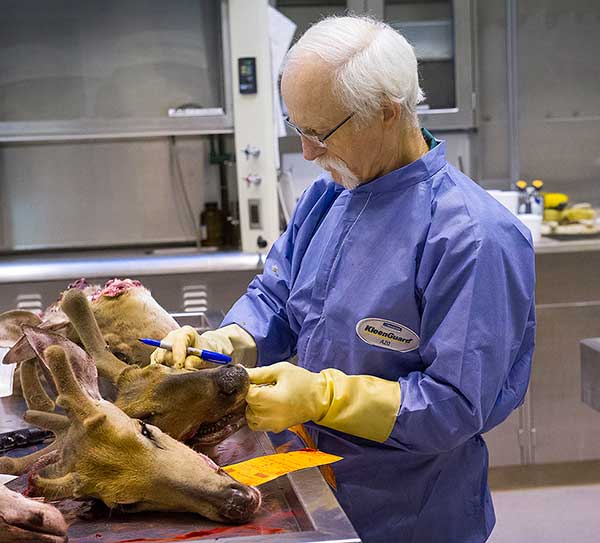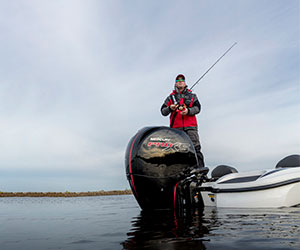
What's New?

It’s that time of year again. Kids are back at school, football’s started, and fish will soon be putting on the feed for the long, cold months ahead.

Scott Solomon won the co-angler championship at the Michigan Bass Nation Tournament on Lake St. Clair last weekend.

New Gear
Lund Boats has announced the launch of the all-new 1700 and 1800 Explorer models, purpose-built for anglers who demand rugged performance, low maintenance, and exceptional value.
Newsflash
Michigan DNR Expands Efforts to Stop CWD Outbreak in Deer
- Details
(Provided by Michigan DNR)
 Wildlife Veterinarian Working with Deer CarcassesSince the discovery in May of a free-ranging deer infected with chronic wasting disease in Ingham County, the Michigan DNR has been hard at work sampling deer from the immediate area for additional signs of the disease and putting into effect emergency precautions to prevent as much as possible spread of the disease.
Wildlife Veterinarian Working with Deer CarcassesSince the discovery in May of a free-ranging deer infected with chronic wasting disease in Ingham County, the Michigan DNR has been hard at work sampling deer from the immediate area for additional signs of the disease and putting into effect emergency precautions to prevent as much as possible spread of the disease.
So far, no additional infected animals have been found.
Chronic wasting disease is an unusual neurological disorder that affects members of the deer family. CWD is caused by prions - mutating proteins in the animal’s nervous system - not a bacteria or virus. A form of transmissible spongiform encephalopathy, similar to mad cow disease, CWD causes lesions in the brain. Infected animals exhibit uncharacteristic behavior - they lose their fear of humans, for instance - and gradually waste away. CWD has never been shown to cause illness in humans.
NRC Approves 2015 U.P. Antlerless Deer Hunting Restrictions
- Details
(Provided by Michigan DNR)
The Michigan Natural Resources Commission decided to eliminate the harvest of antlerless deer during the archery season for hunters using deer or deer combo licenses in the Upper Peninsula.
The restriction, which does not affect the firearm deer season, will be in effect for the 2015-2016 season. The NRC made the decision at its monthly meeting in Monroe, Michigan, in an effort to aid the Upper Peninsula's struggling deer population, which has declined to a level comparable to the early 1980s following three successive winters with severe conditions.
There have been roughly 5,000 to 6,300 antlerless deer harvested in the U.P. by archers over each of the past four years.
Although deer regulations currently are on a three-year cycle, elements such as weather and disease can cause regulations to be reviewed mid-cycle and adjusted when appropriate.
Page 123 of 267













Connect With Us